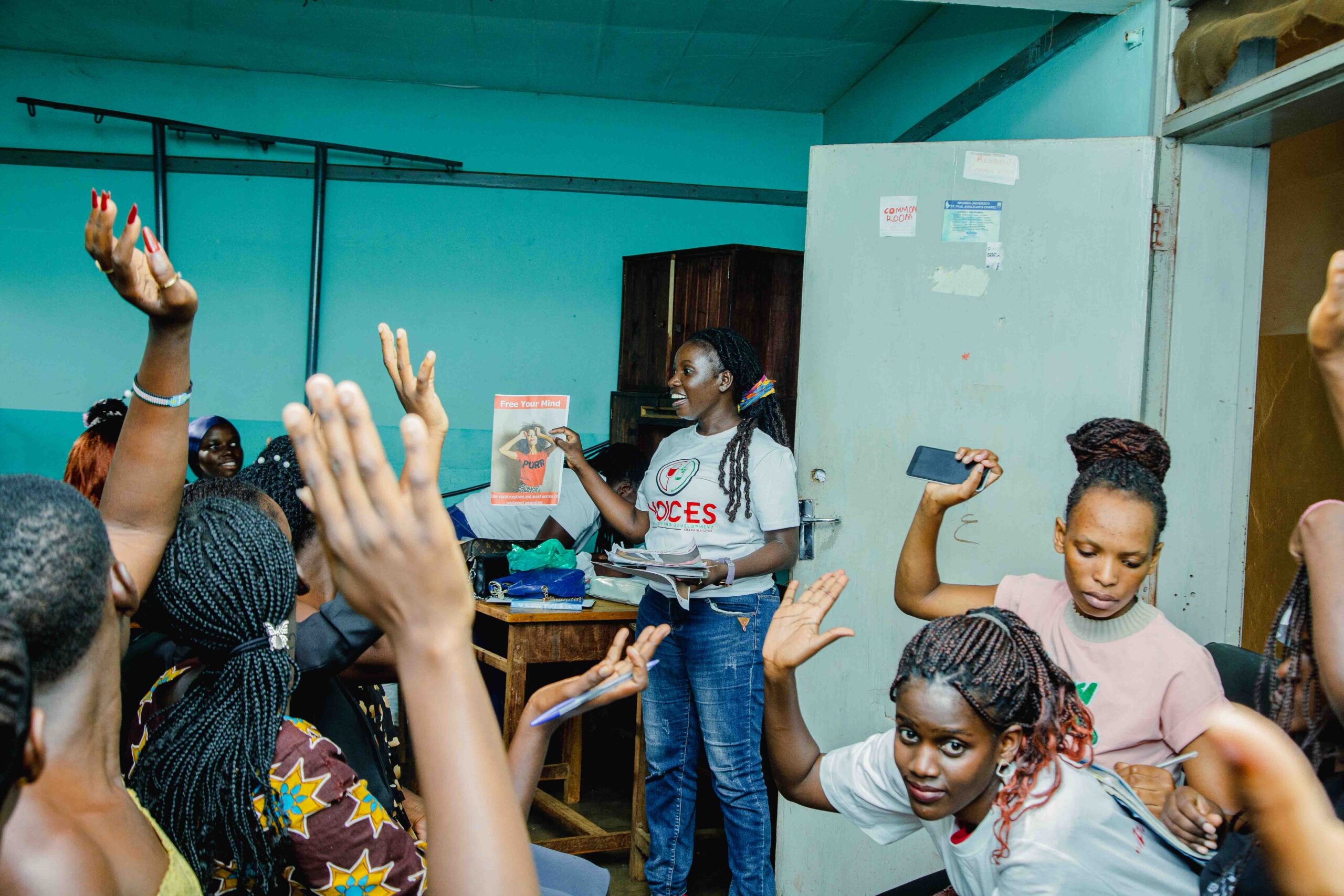On Tuesday, May 20, 2025, Voices for Health and Development, a feminist, women-led not-for-profit organization, conducted a strategic testing phase for a new communication campaign focused on modern contraceptives for girls in universities.
The exercise brought together close to 40 female students from Nkumba University, who engaged in interactive focus groups, sharing their thoughts and feedback on potential campaign names, taglines, imagery, and key messages.
According to Rose Mahoro, the Programs Manager at Voices, the testing phase is critical in ensuring that the campaign’s messaging is clear, emotionally resonant, and culturally appropriate. “Before any full campaign is launched, especially one dealing with deeply personal and often stigmatized topics like sexual and reproductive health, it is critical to test the messaging with the intended audience,” Mahoro said.
The campaign aims to promote informed, confident choices around family planning, with a focus on demystifying modern contraceptives and linking them to both safety and well-being. Mahoro added that the campaign seeks to empower university girls aged 18-25 as they take charge of their health and future. “Testing the campaign directly with students ensures that our messages are relatable, impactful, and grounded in the lived experiences of young women,” she said.
During the exercise, students shared important insights about how they perceive modern contraceptives, expressing that previous campaigns feel distant, moralistic, and they were excited to co-create something bold, fresh, and honest.
Namaganda Leticia, a first-year student pursuing a Bachelor of Science in Cyber Security and Digital Forensics, said, “Current campaign language alone makes you feel judged versus supported.”
Awori Zaituna, a first-year IT student, said, “When I heard they were coming, I knew I had to attend. As girls, we face many challenges, and having access to clear information on how to take care of ourselves is invaluable. We have been able to discuss and come up with a campaign that reflects our journey, ambition, and agency.”
Mahoro noted that the participatory design process is not only respectful but essential to creating communication that drives real change. “This inclusion, evidence-based communication, and youth-centered SRH advocacy will directly shape the final version of the campaign before it’s rolled out to other institutions,” she said.

According to the World Health Organization, contraceptive information and services are fundamental to the health and human rights of all individuals. The organization estimates that 257 million women of reproductive age have an unmet need for contraception, citing limited access, limited choice of methods, fear or experience of side-effects, cultural or religious opposition, poor quality of available services, and gender-based barriers as some of the reasons.
Voices for Health and Development believes that by empowering young women with accurate knowledge, they can take charge of their health and futures, hence unlocking their full potential. The organization pledges to continue shining a light on sexual and reproductive health rights, proving once more that when young women are equipped with the right knowledge, they are truly empowered to take control of their health and their futures.


















Discussion about this post